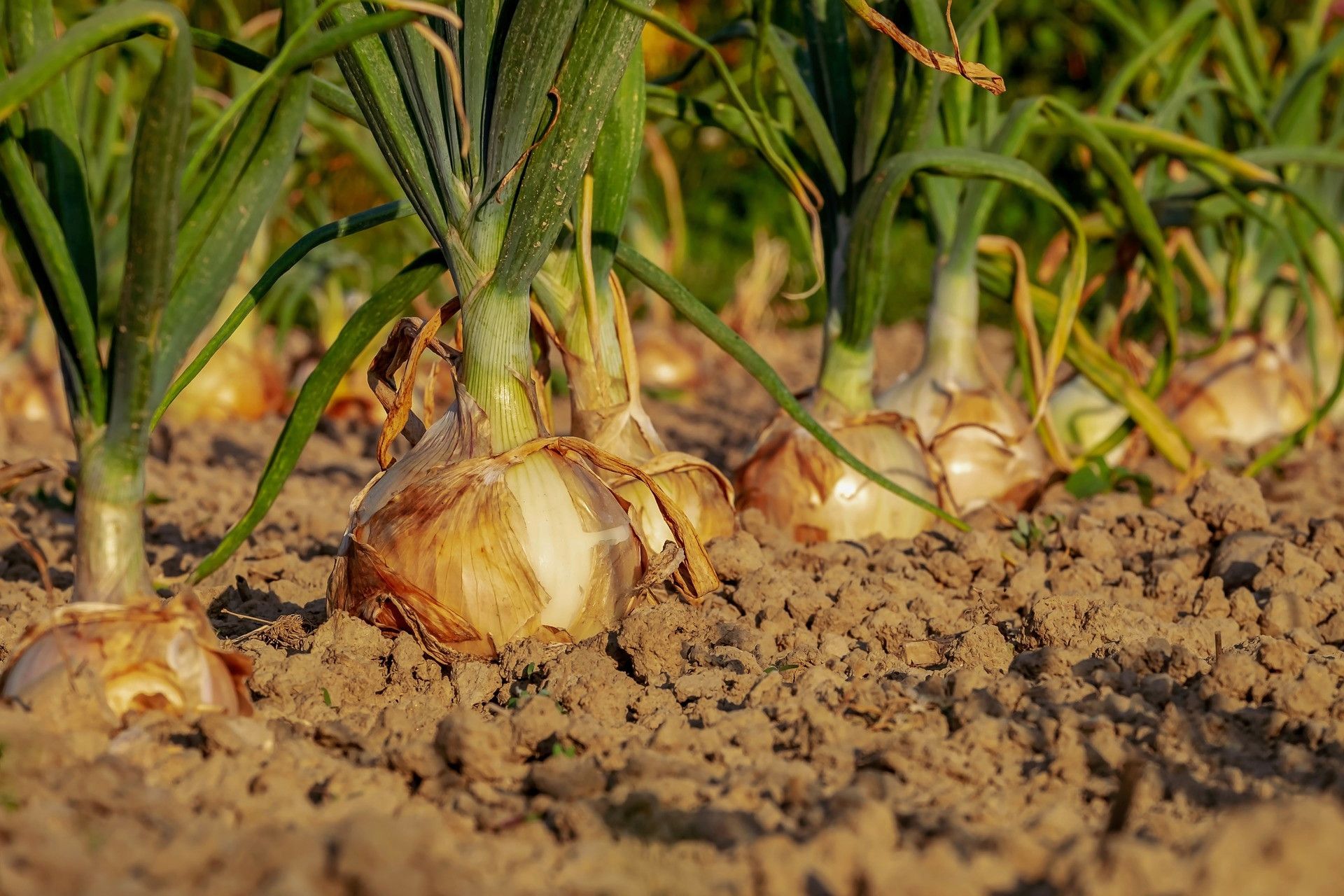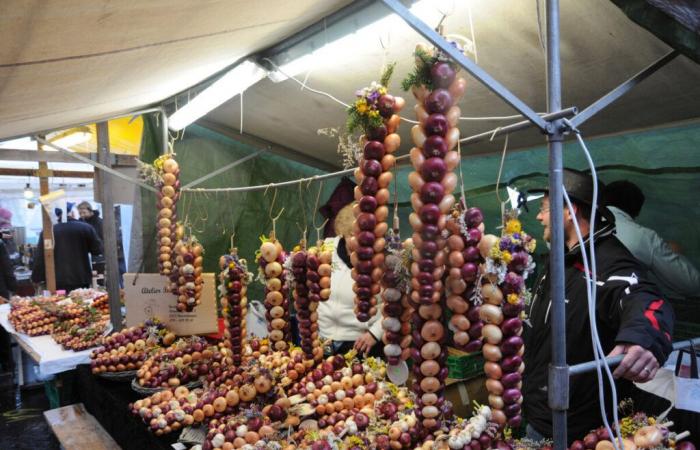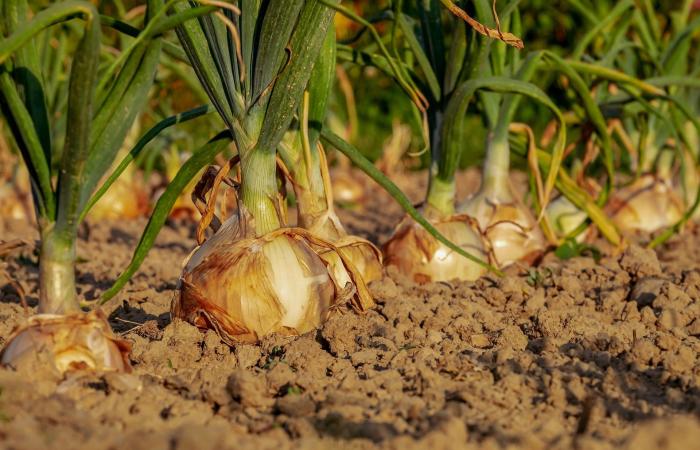The Bernese Zibelemärit takes place on the 4th Monday in November. The onion braids are his characteristic trademark.
Samuel Krähenbühl
PreviousNext
This year’s onion harvest is modest. “The quantities stored are rather low, at 15,500 tonnes in mid-October,” explains Matija Nuic, director of the Swiss Vegetable Producers Association (VSGP). Although this represents a slight improvement over the wet year of 2021, the figures are well below the peaks of 2020 and 2022, when over 20,000 tonnes were achieved each.
An important reason for the decline is the low area yields. Although the area under cultivation has increased steadily in recent years, yields per hectare are tending to decline. “We need more area to achieve the same yields,” emphasizes Matija Nuic. The growing areas are mainly distributed between Zealand, with around 40 percent of national production, as well as St. Gallen and Vaud.
Extreme weather and illnesses make production difficult
The weather in 2023 was one of the biggest challenges for onion cultivation. In particular, the heavy rain posed major problems for producers. “Fungal diseases such as downy mildew are particularly a problem in this wet weather,” explains the VSGP director.
These diseases spread particularly quickly in humid conditions and affect both the quality and storage stability of the onions. Storage is therefore also critical due to the humid conditions: “It is uncertain how well the onions will hold up in storage, as wet weather dominated some of the storage,” explains Matija Nuic.
Elimination of pesticides
An increasingly pressing problem is the loss of key plant protection products. According to a report by the VSGP, the number of approved active ingredients has decreased significantly in recent years and from 2026 onwards, other proven agents will no longer be available.
“The culture can no longer be adequately protected,” explains Matija Nuic, which becomes a serious problem for production volumes, especially in combination with climatic conditions like this year. The consequences are falling yields and an increasing burden for producers, who are increasingly dependent on emergency approvals.
Matija Nuic is director of the Association of Swiss Vegetable Producers (VSGP).
zvg
As the VSGP emphasizes in its report in the association magazine “Der Vegetable Growing”, the situation is particularly precarious because new active ingredients are not available in a timely manner due to approval processes and administrative hurdles. The association further points out that the process for approving new crop protection products is also being severely slowed down by a lack of interest on the part of manufacturers. Although emergency approvals are used to create short-term solutions, these are not a sustainable answer to the structural problems.
Price pressure and market conditions
In addition to the climatic and regulatory challenges, onion producers are also under economic pressure. The market prices for onions remain low, although demand hardly increases significantly when prices fall: “The price pressure continues to increase, although the price elasticity of onions has to be questioned – when prices are lower, not many more onions are bought,” explains Matija Nuic.
Nevertheless, the onion remains an important product for the retail trade, which, according to Matija Nuic, often uses it to distinguish itself from competitors. This increases price pressure on producers, who have to contend with rising costs for cultivation, harvesting and storage, which puts additional strain on the economics of cultivation.

Onions are one of the vegetables that are in season all year round.
color
On the one hand, the demands are increasing due to weather extremes, the loss of pesticides and economic pressure. On the other hand, the demand for high-quality, locally produced onions remains stable. In order to ensure sustainable production, the VSGP is calling for more support in the form of approvals for new crop protection products, investments in research and adjustments to market conditions.








